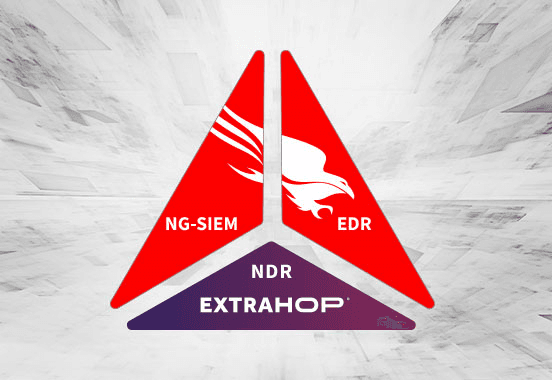Here's the Deal With AWS Outposts
Back to top
December 18, 2018
Here's the Deal With AWS Outposts
Amazon Web Services is re:Thinking its approach to the enterprise
Expectations are always high for re:Invent, Amazon Web Services' annual user conference in Las Vegas. But the heat was really on for 2018, the first year AWS would take the stage fully aware that its market dominance was at risk. The white flag was the announcement of AWS Outposts, its answer to Microsoft Azure Stack and its first entry into the enterprise data center.
AWS has long had an enterprise problem. They do well in down-market, cloud-first development (startups and mid-market businesses spinning up AWS-native stuff). They do poorly with bigger companies that require enterprise-grade capabilities and don't want to be tied to a single provider.
Many of those companies also face competitive threat from non-AWS Amazon businesses (e-commerce, obviously, but also retail), and balk at funding their competition via AWS. If I'm running one of the countless businesses that Amazon threatens to squeeze out of the marketplace, why would I give them my cloud dollars?
Further complicating its relationship to enterprises is that AWS tells its customers to "lift-and-shift"–in other words, move everything to the cloud and sort out the messy refactoring later. Customers, analysts, and our own experience tell us this doesn't work. When business-critical applications don't perform after moving to the cloud, CIOs get nervous, which is understandable. After all, there are hundreds of millions of dollars on the line with cloud migration initiatives.
So, what is AWS Outposts and why should enterprises care? AWS Outposts gives enterprise data centers fully managed and configurable compute and storage racks built with AWS-designed hardware for a seamless hybrid cloud experience.
This isn't the first time Amazon dabbled with hybrid cloud–Storage Gateway, Snowball Edge, DynamoDB Local, etc.–but it has never shipped hardware that can run EC2 and EBS, the core of AWS. While it's obviously too early to know how well this move will resonate with enterprises, I can see many potential "green lights" from a CIO's perspective:
- With Outposts, AWS is selling you racks of gear, the same ones it uses to build its own data centers. You can certify your apps on their platform before moving to AWS proper. They'll do this at a price point of their choosing, depending on where you are in your migration.
- AWS is taking on the maintenance and support of the hardware, which removes the financial burden from the CIO. If the migration is halted, and the CIO/CISO is under pressure, this gives the CIO air cover to get the migration moving again.
- CIOs under capital pressure don't have to worry about capital assets on their balance sheets as they move from CapEx to OpEx. They aren't taking on a capital spend that depreciates over 3-5 years in their legacy data centers. They're already transitioning to a subscription model with Amazon's hardware providing the financial bridge (Amazon owns the capital assets, which they buy/build at a steep discount at their scale, and they move between Amazon customers).
- From an enterprise velocity standpoint, AWS Outposts is very attractive. Your $1B-plus business is struggling to migrate? No worries... AWS will bring public cloud right to your data center. You can let everyone get comfortable in-house and stage the migration from there.
From where I'm sitting, this announcement is the most important signal from AWS in 2018/9 as it pertains to the enterprise. The numbers tell the full story.
- Azure & Google Cloud Platform grew 26% and 22% in the enterprise, respectively, between 2017 & 2018. This growth is expected to accelerate in 2018-9. By comparison, AWS grew 14% in 2017-8.
- Azure beat AWS in IaaS / PaaS revenue for the first time last month (trailing 12 months revenue).
If I had to guess, AWS Outposts is just the first of several ways AWS could adjust to win back the enterprise. Does it mean they're going to get more customer-focused in responding to inquiries for feature set? Will AWS continue to add enterprise-grade features, like the virtual network TAP Azure announced at Ignite 2018? Does it mean that the posture with their partners will improve? All of these things have been strategic selling-points for Microsoft Azure.
Ultimately, an enterprise-friendly AWS means great things for cloud customers, as well as B2B companies with enterprise-ready platforms (such as ExtraHop). It means that our customers running in AWS are going to have a user experience on par with the experience they have running ExtraHop in Azure. Whether that experience is sufficiently compelling to overcome strategic and competitive concerns is an unanswered question.
Discover more

Director of Cloud Product Marketing
Eric Thomas serves as Director of Cloud Products for IT analytics company ExtraHop. Prior to taking this role, Eric led the ExtraHop professional services team, and draws on over 20 years of experience in IT operations.
Before joining ExtraHop, Eric performed a variety of operational roles, most recently as director of advanced engineering for Thomson Reuters, where he led a team of performance and availability specialists, supporting over 200 applications representing $2B in annual revenue. His prior experience includes enterprise IT management, SaaS production operations, and next-generation technology advocacy.







